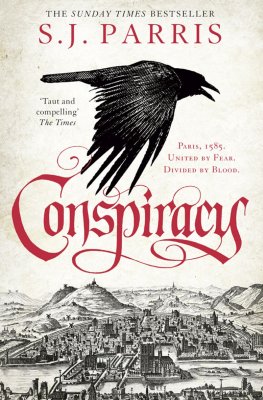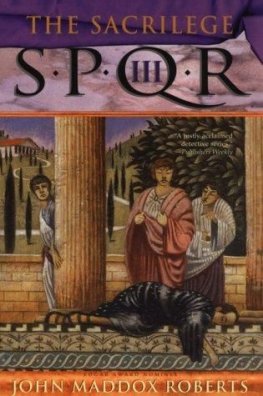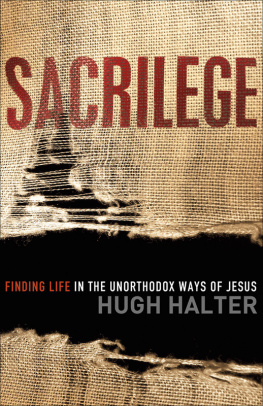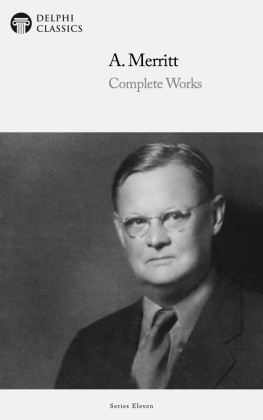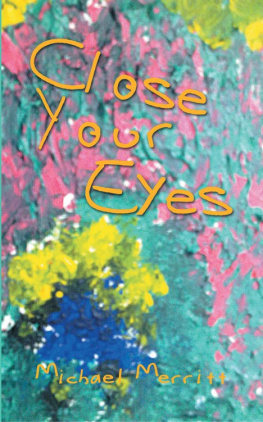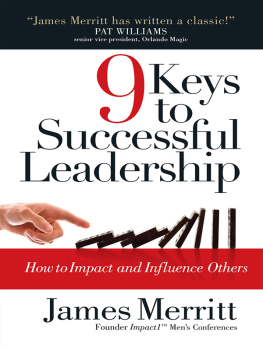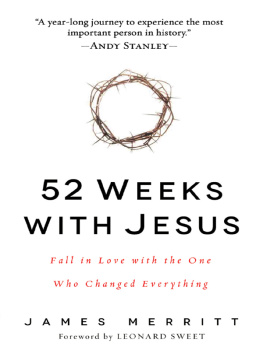Stephanie Merritt - Sacrilege
Here you can read online Stephanie Merritt - Sacrilege full text of the book (entire story) in english for free. Download pdf and epub, get meaning, cover and reviews about this ebook. genre: Detective and thriller. Description of the work, (preface) as well as reviews are available. Best literature library LitArk.com created for fans of good reading and offers a wide selection of genres:
Romance novel
Science fiction
Adventure
Detective
Science
History
Home and family
Prose
Art
Politics
Computer
Non-fiction
Religion
Business
Children
Humor
Choose a favorite category and find really read worthwhile books. Enjoy immersion in the world of imagination, feel the emotions of the characters or learn something new for yourself, make an fascinating discovery.

- Book:Sacrilege
- Author:
- Genre:
- Rating:5 / 5
- Favourites:Add to favourites
- Your mark:
- 100
- 1
- 2
- 3
- 4
- 5
Sacrilege: summary, description and annotation
We offer to read an annotation, description, summary or preface (depends on what the author of the book "Sacrilege" wrote himself). If you haven't found the necessary information about the book — write in the comments, we will try to find it.
Sacrilege — read online for free the complete book (whole text) full work
Below is the text of the book, divided by pages. System saving the place of the last page read, allows you to conveniently read the book "Sacrilege" online for free, without having to search again every time where you left off. Put a bookmark, and you can go to the page where you finished reading at any time.
Font size:
Interval:
Bookmark:
S. J. Parris
Sacrilege
Chapter 1
I knew that I was being followed long before I saw or heard my pursuer. I felt it by some instinct that by now had been sharpened by experience; a shifting of the air, a presence whose movements invisibly shadowed my own. Someone was watching me and had been for several days: from the mouths of alleyways, from behind pillars or walls, amid the crowds of people, carts, and animals that thronged the narrow streets of London or out among the river traffic. At times I even sensed eyes on me in the privacy of my room at Salisbury Court, though that was surely impossible and could only have been the tricks of imagination.
It was the twenty-third day of July 1584, and I was hurrying to deliver my new book to my printer before he left London for the rest of the summer. A merchant ship from Portugal had recently docked at Tilbury, at the mouth of the River Thames. Plague was raging in Lisbon and the crew had been forcibly quarantined; despite these measures, rumours that the infection had begun to claim English victims were spreading through the city quicker than the disease itself ever could. Outbreaks of plague were common enough during London summers, I had been told, and any Londoner with the means to move to healthier air was packing as fast as they could. At the French embassy, where I lived as the ambassadors houseguest, whispers of the black plague had sent the household into such a frenzy of imagined symptoms that the ambassador had dispatched his private secretary to enquire about country houses in the neighbourhood of the Palace of Nonsuch, Queen Elizabeth of Englands summer residence.
Fear of the plague had only added to tensions at the embassy in the past few days. Our peace had been shattered the previous week by the arrival of the news from the Netherlands that William the Silent, Prince of Orange, had been assassinated, shot in the chest on the staircase of his own house in Delft by a man he knew and trusted. I imagined that in all the embassies of the Catholic and Protestant powers throughout the greatest cities of Europe, men and women would be standing much as we did when the messenger arrived, speechless in the face of an act whose repercussions would shake the world as we knew it. The shock and fear occasioned by the deed were still palpable in the streets of London; not that the English people gave two figs for William himself, but it was well known that the Catholic King Philip II of Spain had offered a reward of twenty-five thousand crowns for his murder. And if one Protestant ruler could be knocked down as easily as a skittle, there was no doubt that Queen Elizabeth of England would be next on Philips list. The sense of foreboding was all the greater at Salisbury Court because Williams assassin had been a Frenchman.
John Charlewood, my printer, had his lodgings at the Half-Eagle and Key in the street known as Barbican, just to the north of the city wall. He also had a press nearby at the Charterhouse, the old Carthusian monastery which had been converted into a grand private residence, but I refused to visit his business premises; the Charterhouse was now owned by Thomas Howard, half brother to the young Earl of Arundel. I had made enemies of the Howards-the most powerful Catholic family among the English nobility-the previous autumn and preferred to avoid the possibility of running into any one of them. This amused Charlewood, but he never asked questions; he was sufficiently eccentric himself to tolerate the apparent caprices of others, or else shrewd enough to realise that, in these days of tangled loyalties, it is often safer not to know another mans business.
The sun was already high when I set out from Salisbury Court with a leather satchel containing my manuscript pages slung around my back. Sharp diamonds of light glinted from the windows of the buildings on Fleet Street, mostly printers and taverns that served the nearby law courts. As I walked, my feet scuffed up clouds of dust from the cobbles; occasionally I had to step aside to avoid a heap of fresh horse dung, but elsewhere the heat had hardened older piles into dry, straw-scattered crusts. The smell of rotting refuse and the sewage stink of the Thames weighed down in the still air; I pressed the sleeve of my linen shirt over my nose and tried to breathe through my mouth. The sun beat hard on a street that was curiously quiet. The law terms had finished now, so Fleet Street was missing the bustle of the Inns of Court, yet one would have expected more traffic on the main thoroughfare from Westminster to the City of London. I glanced around. Perhaps people were staying indoors for fear of the plague; perhaps they had all left for the countryside already, and the few souls remaining at the embassy were unwittingly living in a ghost town. This thought made me impatient; life was so fraught with natural hazards and those we invite on our own heads that if you were to spend your life hiding from the prospect of trouble, you would never leave your chamber. I should know, having spent the past eight years on the run through Europe with dangers cold breath constantly at my neck, ever since the night I fled from my monastery in Naples to escape the attention of the Inquisition. Yet my life had been fuller, more vivid, and infinitely more precious to me during those eight years, when I had come close to losing it several times, than in the thirteen years I had lived safe inside the sacred walls of San Domenico Maggiore.
I had just crossed Fleet Street and turned into Shoe Lane when I saw it: a disturbance at the edge of vision, brief as a blink, and then it was gone. I whipped around, my hand flying to the hilt of the bone-handled dagger I had carried at my belt since the night I became a fugitive, but the lane was almost empty. Only an old woman in a thin smock walked towards me, her back bent under the weight of her basket. She chanced to glance up at that moment and, seeing me apparently reaching for my knife, dropped her goods and let out a scream that echoed across the river to Southwark and back.
No, no-good madam, dont be alarmed. I held my hands out, palms upwards, to show my innocence, but hearing my accent only made things worse; she stood rooted to the spot, shrieking all the louder about murdering Spanish papists. I tried to make soothing noises to quieten her, but her cries grew more frenzied, until the door of a neighbouring house opened and two men emerged, blinking in the strong light.
What gives here? The taller glared at me from beneath one thick eyebrow. Are you all right, goodwife?
He went for his knife, the filthy Spanish dog, she gasped, clutching at her chest for good measure. He meant to cut out my heart and rob me blind, I swear it!
I am sorry to have caused you any alarm. I held up my empty hands for the men to examine. I thought I heard someone following me, that is all. I glanced up and down the street but there was no sign of movement apart from the shimmering heat haze that hovered over the ground up ahead.
Oh yeah? He tilted his chin at me and gave a little swagger. Likely story. What business have you here, you Spanish whoreson?
Stand back, Gil, he might be one of them with the plague, his companion said, half hovering behind the big mans shoulder.
Have you come here bringing plague on us, you filth? the man named Gil demanded, his voice harder, but he took a step back nonetheless.
I sighed. Most Englishmen, I have discovered, know of only two other nations, Spain and France, which their mothers used interchangeably to frighten them as children. This year it was the turn of the Spanish. With my dark hair and eyes and my strange accent, I found myself accused several times a week of wanting to murder honest English folk in their beds in the name of the pope, often while I was simply walking down the street. In some ways, London was the most tolerant city I had ever had the good fortune to visit, but when it came to foreigners, these islanders were the most suspicious people on earth.
Font size:
Interval:
Bookmark:
Similar books «Sacrilege»
Look at similar books to Sacrilege. We have selected literature similar in name and meaning in the hope of providing readers with more options to find new, interesting, not yet read works.
Discussion, reviews of the book Sacrilege and just readers' own opinions. Leave your comments, write what you think about the work, its meaning or the main characters. Specify what exactly you liked and what you didn't like, and why you think so.

